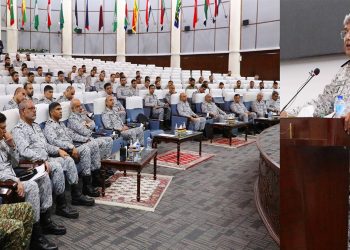KABUL: The UN Children’s Fund (UNICEF) has welcomed the reopening of secondary schools in Afghanistan on Saturday, after months of closure due to coronavirus pandemic, but stressed that girls must not be kept from the classroom.
“We are deeply worried”, UNICEF chief Henrietta Fore said in a statement, “that many girls may not be allowed back at this time”.
Some Afghan girls returned to primary schools with gender-segregated classes on Saturday, but older girls faced an anxious wait with no clarity over if and when they would be able to resume their studies at the secondary school level.
Most schools in the capital Kabul have stayed shut since the Taliban captured the city just over a month ago. Taliban officials say they will not return to the fundamentalist policies including a ban on girls receiving an education when they last ruled Afghanistan from 1996 to 2001. They have now promised that girls will be able to study but only in segregated classrooms.
According to news reports, the announcement of school reopening from the Taliban, referred only to the return of boys, making no reference to a return date for girls.
“Girls cannot, and must not, be left behind. It is critical that all girls, including older girls, are able to resume their education without any further delays. For that, we need female teachers to resume teaching”, Ms Fore added.
The Taliban announced an interim government last week, with a slew of promises, assuring not to repeat the policies of the previous Taliban regime (1996-2001)
Even before the most recent humanitarian crisis – for which the UN held a pledging conference to extend a lifeline to the most vulnerable – 4.2 million children were not enrolled in school, around 60 per cent of them girls, according to UNICEF.
“Every day that girls miss out on education is a missed opportunity for them, their families and their communities”, the UNICEF chief said.
Despite this, there have been important improvements for the country’s children that must be respected and protected.
Over the past two decades, significant progress in education has been made, with a three-fold increase in the number of schools in the country and a surge in the number of children in attendance – from one million to 9.5 million.
In this regard, UNICEF is urging development partners to support education “for all children” in Afghanistan.
“UNICEF will continue to advocate with all actors so that all girls and boys have an equal chance to learn and develop the skills they need to thrive and build a peaceful and productive Afghanistan”, Ms Fore said.
Taliban spokesman Zabihullah Mujahid told a local news agency that arrangements were being made to reopen girls’ secondary schools but he gave no date.


































